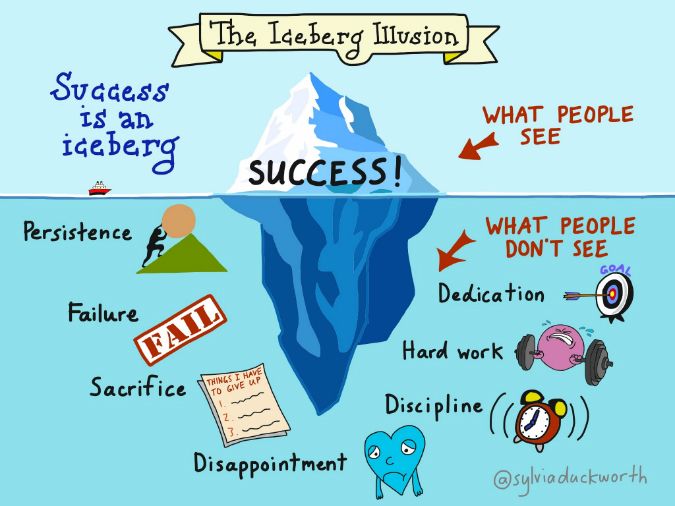I graduated from UCSC (University of California at Santa Cruz, USA) with a degree in Economics in 1999. I was a marine biology major for the first two years of college because I loved the ocean and enjoyed SCUBA diving. However, I soon realized that gainful employment as a marine biologist was rare, and to be paid handsomely was unheard of except for the most distinguished in the field. Therefore, I let practicality trump my romantic notion of a life lived under the sea and switched to Economics.
I did well in school and enjoyed my accounting classes in my junior and senior years. Not that the subject matter was fascinating (it was not), but my teacher drew me to the subject. He was a kind, patient, intelligent and funny professor. I fondly remember that he would give us a break when he thought we had been focusing long enough on our work in class. He called these breaks “sherberts” – sometimes used in fine dining between meals to cleanse your palette. During these “sherberts,” he would tell us jokes and stories. It was a fun way to learn; this memory has stuck with me for decades. His name was Mr. Shepherd.
It was easy to get a job after graduating. Accounting degrees were in demand, so I landed work at an accounting firm. It was so dull. To open up my prospects and take a break from working, I thought it’d be helpful and fun to get my MBA. I applied to the UCI school of business (University of California at Irvine) and got in. I was not the most outstanding student in my MBA classes, but I found the experience fulfilling. It was a two-year degree, and in the summer after the first year of instruction, we were encouraged to intern at a company we were interested in. Some of the most sought-after internships were those with prominent management consulting firms. One of these was PwC (PricewaterhouseCoopers), and I set my sights on securing one of these positions. I landed an interview and soon found myself with a summer internship at PwC. It went well, and I continued to my second and last year of MBA school.
Securing the internship is an excellent way to land a full-time role after getting your MBA. But, it is not guaranteed, and one of the more challenging steps to getting that coveted offer is to ace the interview with one of the partners at the firm. I received some sage advice that the partner I was scheduled to interview with for the full-time role always liked to ask about our favorite subject in school. But this was not an innocent question. As soon as you gave your answer, my friend told me that this partner would grill you on the subject matter related to your “favorite” subject, so do not answer lightly.
Before going into the interview, I decided that the subject I knew best and found interesting was Econometrics, which uses math and statistics to quantify economic phenomena. The textbook for this class was a tome. It had to be at least 300 pages. I flipped it open to a random page and memorized a 3-page section, in case it helped. That decision paid off.
Like my friend said, the partner asked me my favorite subject, and after telling him “Econometrics,” he jumped right in, took out a piece of paper, and started drawing a graph. I couldn’t believe it. It was the same graph that I had randomly decided to study the day before. What were the chances? He asked me a few questions about the chart, which I breezily answered. I then noticed that he had mislabeled his graph. He had put infinity as the slope at a certain point, but I remembered that the slope there was negative infinity. So I casually reached over and corrected his mistake, sliding a negative sign in front of his sideways 8. I could see it in his eyes and his demeanor. He was impressed and perhaps a little shocked. I knew then and there that I had landed the job.
True to Southern California style, my full-time job offer was delivered to me in the ocean while surfing with one of the firm’s partners. Naturally, I was ecstatic, for I had landed a highly sought-after position, and I had dreams of all the money and power that was sure to follow.
Knowing I had a lucrative job in my back pocket made the second year of school a breeze. I had no worries. We often found ourselves out at a bar or a club, dancing and enjoying our freedom during the weekends (which started on Thursday and sometimes Wednesday). During one such weekend, my good friend and classmate said I should come out and meet his friend visiting from Alameda, where he’d grown up. I agreed and met his friend Sharine, my future wife.
When I started full-time at PwC, I was intimidated by the caliber of my colleagues. Unfortunately, I let myself fall under the spell of imposters syndrome. Somehow, I felt I did not belong or wasn’t as intelligent as some in my cohort. As a result, I did not excel at work and was eventually laid off after a few years. Was I shocked or surprised? Not at all. I had let myself blend into the background instead of standing out. Instead of learning all I could and challenging myself and my peers, I succumbed to imposters syndrome, where I felt I couldn’t compete with my talented colleagues around me. Looking back, it haunts me because I did not give it my all, and I’ll never know if I could have succeeded had I leaned into the work. Part of the problem was I let the “imposter syndrome” seep deeply into my consciousness. Somehow it seemed safer to fail from lack of effort rather than give it my all and fail nonetheless. Now I understand that many of my colleagues probably suffered from imposter syndrome too, but the way out is to build your skills and network and keep trying rather than giving up.
When Om Swami recently announced that he’d pray for each of us to help us purge our consciousness of any one specific regret, this was the one that came to my mind right away. So, if you have an opportunity like I had, please do not let it slip through your hands, and give it your all – whatever the work.









Comments & Discussion
38 COMMENTS
Please login to read members' comments and participate in the discussion.